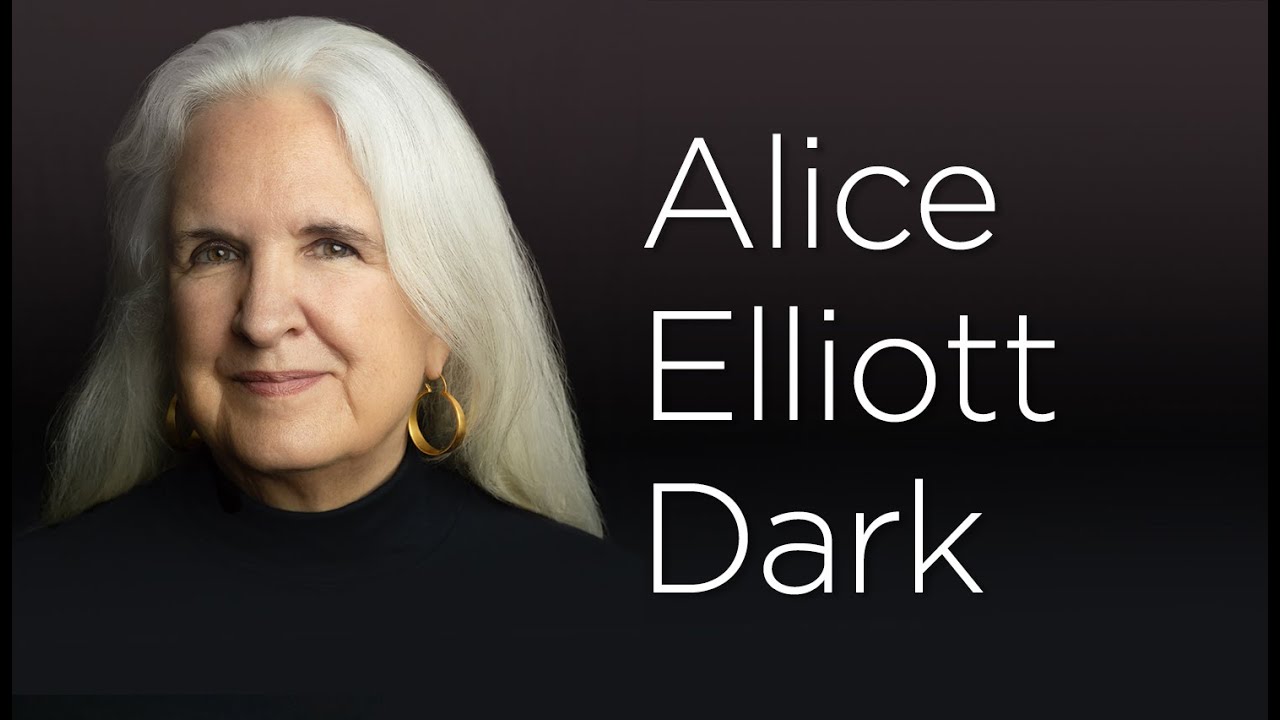I loved this, too. And on a related note, the novel depicted older women with accuracy. So much of Agnes and Polly’s experiences of aging rang true to me – partly for myself, but more for the way I remember my own mother (same era as Agnes and Polly). Competent and intelligent women fighting the invisibility and dismissiveness that result from gender and age, as well as the growing frailty of their own bodies.
I remember during one of our CC book discussions (alas, I’ve forgotten the book), we laughed/cried at the depiction of a character who was a woman in her 60s, but written as if she were 102 years old. A misstep by a youthful author. Alice Elliott Dark is a different case entirely. She’s a mature woman and I’m certain she drew from her own experience. Her photo…She could be Agnes.
There were many issues she wanted to address, too. Chief among these was her mission to put old women, whom people “write off” in our culture, front and center — “old women who are still active and still very much in their lives and growing and changing,” she says.
